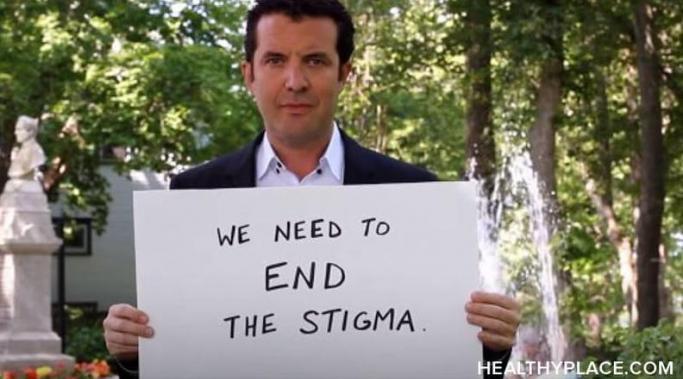Blogs
Around Christmas, I invited you guys to consider whether or not you are putting your recovery from an eating disorder as your first priority. I hope you were able to take some time and really sit with that question and come up with an honest answer for yourself. I have. That’s the thing about putting your eating disorder recovery first – you need to regularly check in with yourself and see if you are still putting your health and recovery first. And if you’re not, you need to figure out how to change that.
When you suffer from a problem like binge eating disorder, you never really conquer all of your demons, particularly those of intrusive thoughts. As hard as you try to keep your thoughts positive and not focus on your body and weight, sometimes there is a spontaneous recurrence of your previous toxic ideas (intrusive thoughts). But when these things happen, and I promise you, they will, you have to take it in stride, realize that these thoughts are not correct and don't need to be considered. Then you have to tell yourself what is actually true.
Enormous and consistent stress on a body will always be evidenced in maladies. Symptoms of posttraumatic stress disorder (PTSD) cause many physical changes that frequently create medical issues. In my own PTSD experience, I developed significant digestive, immune, bone, hair and liver problems. Now, new research suggests PTSD might also cause type 2 diabetes.
We live in a time where mental health issues like anxiety disorders are being taken more seriously as the illnesses that they are. Real progress has been made in recent years in reducing the mental health stigma surrounding anxiety. We're talking about it more and learning to treat anxiety better. There's also an overall softening of social attitudes about it.
Anxiety disorder is the most common form of mental illness, and people are finally starting to recognize the devastating impact it can have on parents, children, families, and friends. Except, one population with a huge increase in anxiety diagnoses is being neglected: anxiety in elderly people.
Anxiety can be difficult to live with; indeed, some might argue that is a huge understatement. There are different types of anxiety disorders, and each comes with its unique challenges and obstacles. All of them fall under the umbrella of anxiety because they share certain commonalities, such as excessive worry and fear, disruptive thought patterns, and a host of physical and emotional anxiety symptoms. Anxiety disorders share another trait: anxiety, in general, has two sides.
I have a mental illness, but this does not make me any different than anybody else. It is stigmatizing for me to think otherwise. There are hidden stigmatized trenches in the way we perceive and think about our identity, and I also feel it is necessary to point out that just because you have a mental illness, you need not single yourself out as abnormal. You just plain have a mental illness and really it is not that big of a big deal.
As anyone who has had depression can attest, your mood isn’t just created by circumstances. How you feel is the result of neurotransmitters sending information through your neurons by binding to receptors. Each neurotransmitter is made of amino acids that are either obtained through food or created by the body. Deficiency in proper nutrients is one of the key ways a depression can be caused or worsened by your diet. Eating the wrong foods can also worsen your mood. Here are 6 ways to relieve symptoms of depression caused by your diet.
Everybody has something that makes the hair on the back of their neck stand up. It may be the sound of nails on a chalkboard or the smell a certain food they cannot stand. Certain words can even make people’s skin crawl for reasons other people may not understand. And there are certain phrases that could trigger emotions when heard by those who self-harm. Those who do not struggle with self-injury may not see some of these phrases as anything but an ordinary, everyday statements. Even though certain things may seem normal to one person, they may be seen and heard in a totally different light and trigger self-harmers.
When our son was a teenager, like many teenagers, he was an avid music fan and, eventually, a musician in his own right. I also enjoyed the music he listened to, so we sometimes bonded over screaming until our vocal cords were bruised. Since it’s a known fact that mental illness runs in families, we weren’t too surprised when our son started showing signs of a depressive disorder. But his disorder and his music choices unearthed some mental illness, depression stigma in our home.
Regardless of any mental illness I have, I am still a regular person with fears and doubts common to everyone. But because I also have an anxiety disorder, I’m able to use anxiety as an excuse when I doubt myself or am afraid of something. And I often do.










I believe she will only be able to rid herself of her demons, and hopefully her BPD as well, when she's ready to confront the abuse of her father. If she can put the blame where it belongs, she may stop projecting that victim/perpetrator cycle on the present men in her life. These demons are a metaphor for the purgatory she has created for herself. That reality has consequences in the real world, but it need not be real in the tangible sense. Exorcising her demons will require the expenditure of real physical energy and probably the destruction of aspects of her personality. If this ever happens, and it's possible but not probable, then these demons will evaporate. They are only as real as one's personality is real. In short, reality is not the question, it's what you make of the things you feel to be real.